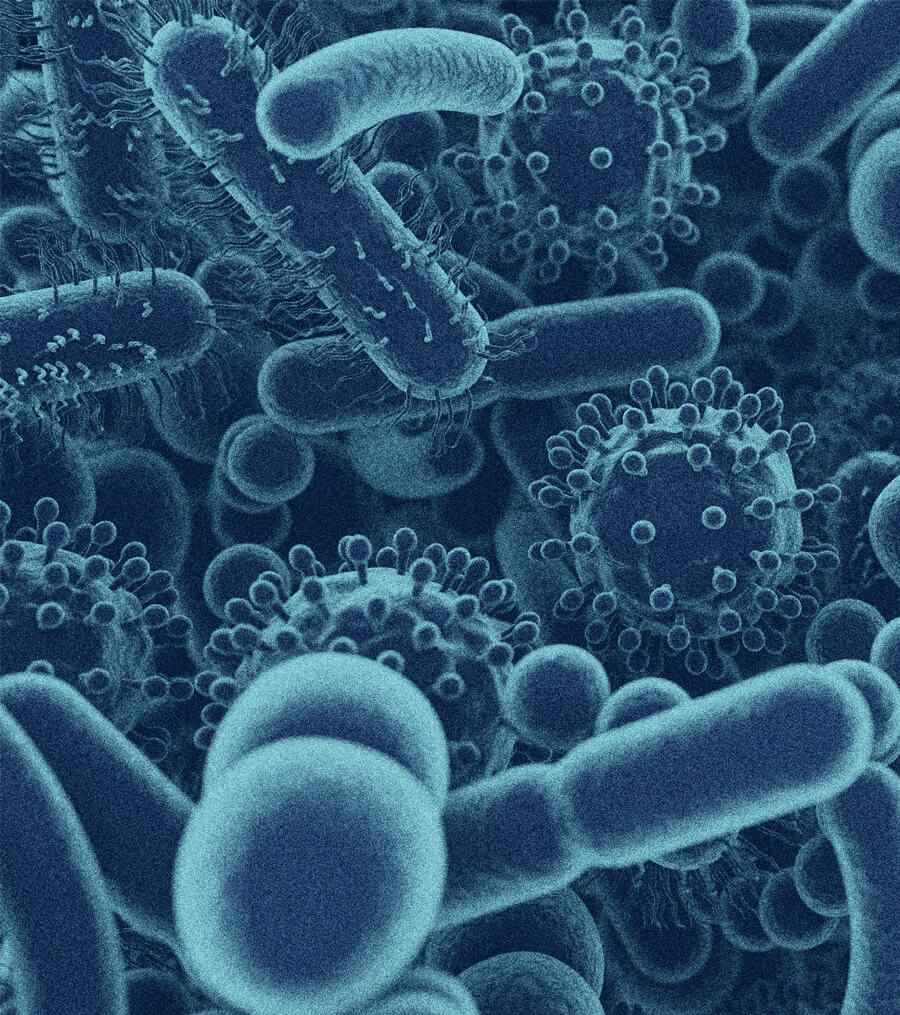
We develop novel bioinformatics algorithms and software tools and apply those to a diverse range of genomics problems: from microbiomes to telomeres.
We development bioinformatics techniques aimed at exploring the temporal response dynamics of microbiome communities to environmental perturbations and treatments. We seek to understand the mechanisms through which the direct effects of perturbations propagate via microbial interactions, leading to changes in microbiome composition over time.
Through application of these techniques we study antibiotic resistance in complex microbial communities, the impact of pesticides on bee gut microbiome and host-microbiome interactions in inflammatory bowel disease.
Related work
Huch S, Nersisyan L, Ropat M, Barrett D, Wu M, Wang J, et al. Atlas of mRNA translation and decay for bacteria. Nature Microbiology, 2023
Vardazaryan N, Adunts L, Bazukyan I, Zakharyan M, Liu H, Melkonian Ch, Nersisyan L. Global distribution of honeybee gut microbiome and pesticide-driven adaptations in opportunistic microbial species. BioRxiv, 2025

Our team aims to discover novel blood biomarkers for non-invasive early cancer diagnostics and treatment monitoring. We focus on telomeres, which are associated with cancer development. Intriguingly, small amounts of telomeric sequences also reside within circulating cell-free DNA fragments in the blood plasma. We develop bioinformatics tools to analyze telomeric sequences in publicly available sequencing datasets and compare healthy individuals with those affected by cancer and other disorders.
Related work
Nersisyan L, Arakelyan A. Computel: Computation of Mean Telomere Length from Whole-Genome Next-Generation Sequencing Data. PLoS ONE, 2015
Nersisyan L, et al. Telomere Length Maintenance and Its Transcriptional Regulation in Lynch Syndrome and Sporadic Colorectal Carcinoma. Frontiers in Oncology, 2019
Nersisyan L, et al. Telomere Maintenance Pathway Activity Analysis Enables Tissue- and Gene-Level Inferences. Frontiers Genetics, 2021

We study how the gut microbiome interacts with intestinal cell senescence and inflammation in Inflammatory Bowel Disease (IBD). Our research focuses on telomeric signatures associated with senescent cells and their relationship with inflammation markers and microbiome composition.
In collaboration with the Institute of Molecular Biology NAS RA, we are conducting a prospective cohort study that tracks individuals over time. By collecting longitudinal stool and blood plasma samples, we analyze inflammation-related biomarkers found in cell-free and extracellular vesicle-associated DNA. These are then correlated with changes in the gut microbiome during periods of IBD remission and flare-ups.














Jalatyan T, Aznauryan E, Hasan R, Vardanyan V, Nersisyan S, Thompson DB, Davidsohn N, Thomas S, van Haren S, Tam J, Milanova D, Church GM, Nersisyan L. hafoe: an interactive tool for the analysis of chimeric AAV libraries after random mutagenesis. Gene Ther. 2025
Zhang Y, Nersisyan L, Fürst E, Alexopoulos I, Santolaria C, Huch S, Bassot C, Garre E, Sunnerhagen P, Piazza I, Pelechano V. Ribosomes modulate transcriptome abundance via generalized frameshift and out-of-frame mRNA decay. Molecular Cell. 2025; 85 (10): 2017 - 2031.e7.
Vardazaryan N, Adunts L, Bazukyan I, Zakharyan M, Liu H, Melkonian Ch, Nersisyan L. Global distribution of honeybee gut microbiome and pesticide-driven adaptations in opportunistic microbial species. BioRxiv doi: https://doi.org/10.1101/2025.02.25.640077
Huch S, Nersisyan L, Ropat M, Barrett D, Wu M, Wang J, et al. Atlas of mRNA translation and decay for bacteria. Nature Microbiology 2023 8:6. 2023;8:1123–36.
Nersisyan L, et al. Telomere Length Maintenance and Its Transcriptional Regulation in Lynch Syndrome and Sporadic Colorectal Carcinoma. Front Oncol. 2019;9:1172.
Nersisyan L, et al. Telomere Maintenance Pathway Activity Analysis Enables Tissue- and Gene-Level Inferences. Front Genet. 2021;12:662464.
Nersisyan L, Arakelyan A. Computel: Computation of Mean Telomere Length from Whole-Genome Next-Generation Sequencing Data. PLoS ONE 2015 10;4:e0125201.
To inquire about roles, contact lilit.nersisyan@abi.am